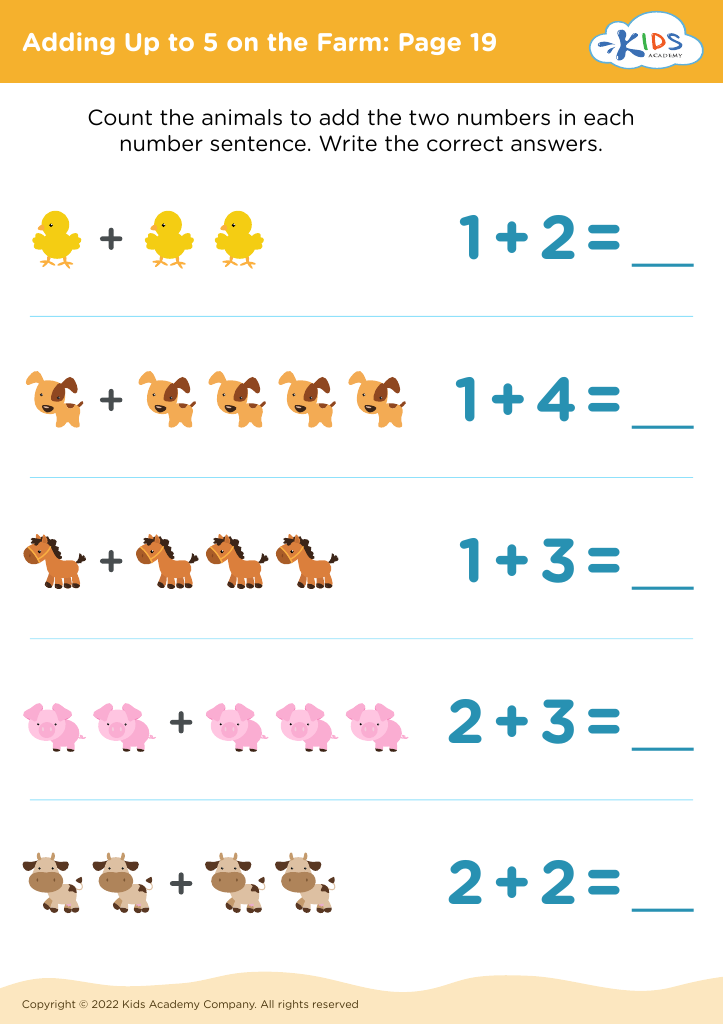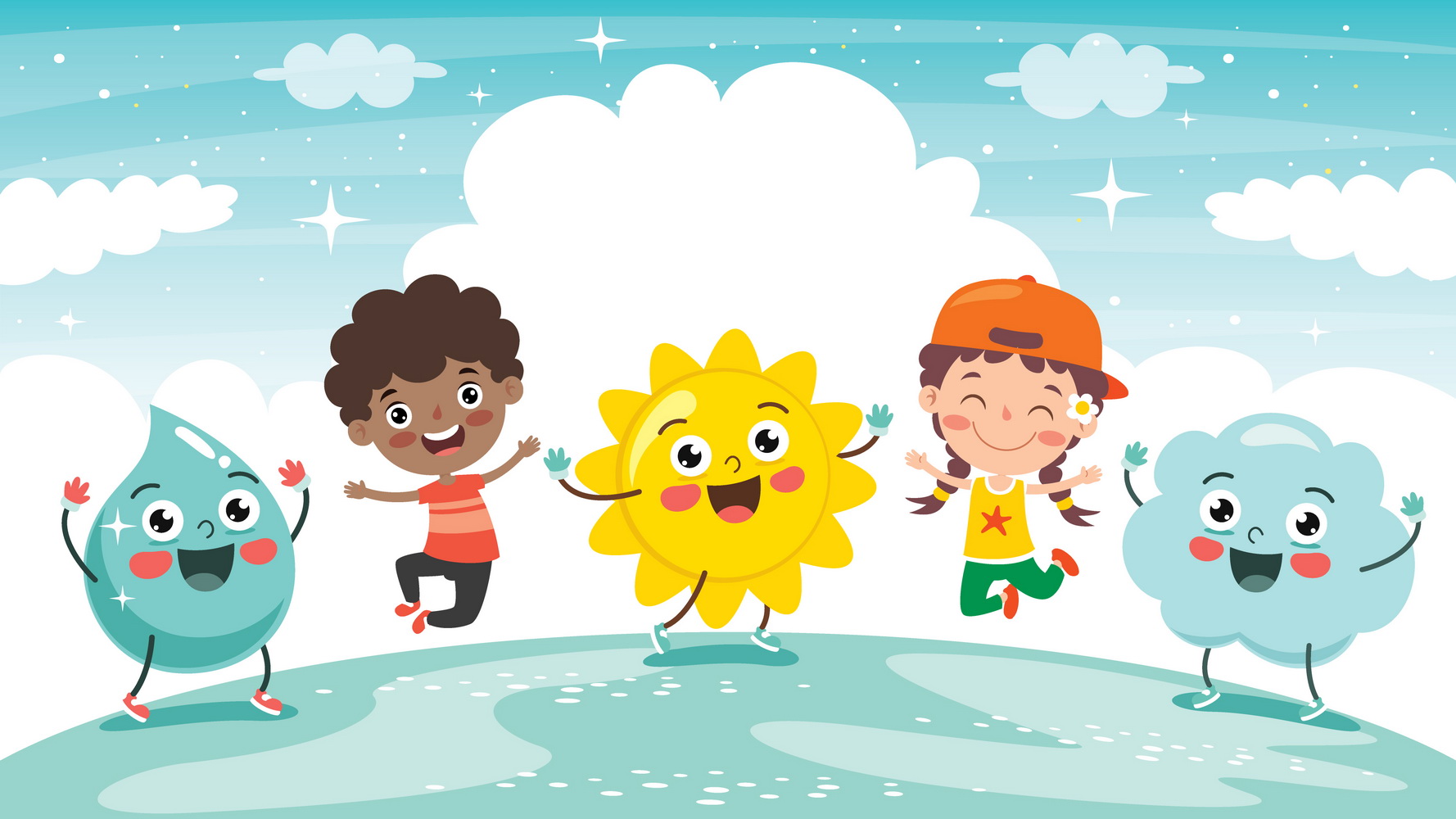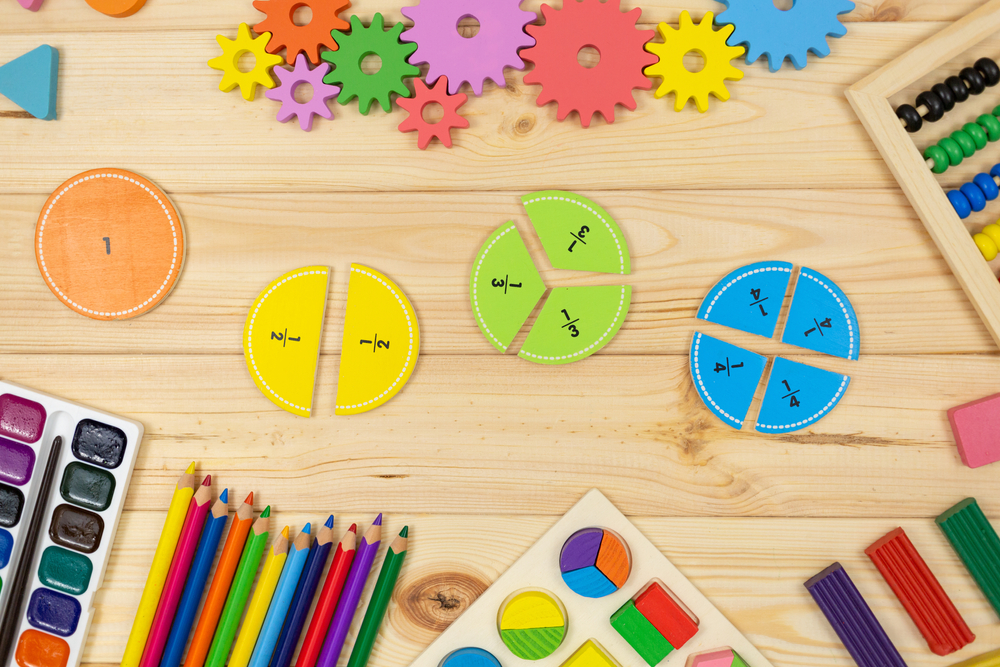Enhancing observation skills Worksheets for Ages 4-5
12 filtered results
-
From - To
Enhance your child's observation skills with our engaging worksheets tailored for ages 4-5! Designed to ignite curiosity and keen attention, these activities foster critical thinking and attention to detail. From identifying objects and colors to spotting differences, our worksheets encourage young learners to focus and explore their surroundings. Perfect for at-home learning or classroom activities, these resources promote cognitive development through playful learning. Each worksheet is crafted to suit the developmental needs of preschoolers, ensuring they enjoy every step of the learning journey. Discover a world of observation skills that makes learning both effective and fun!


Pollinator Positions Worksheet
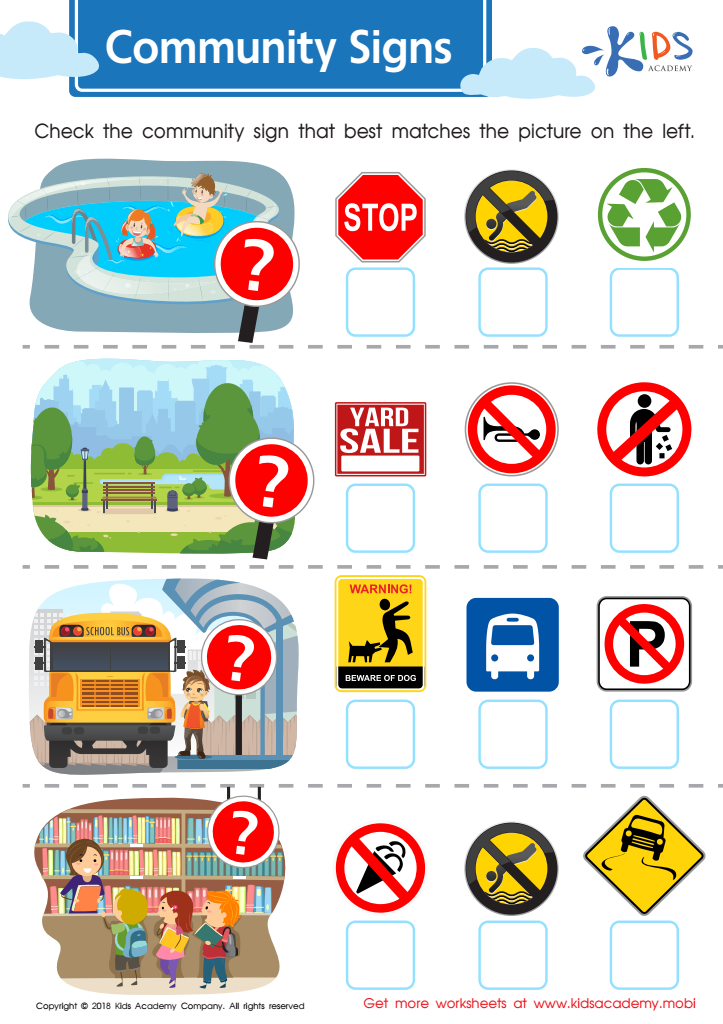

Community Signs Worksheet
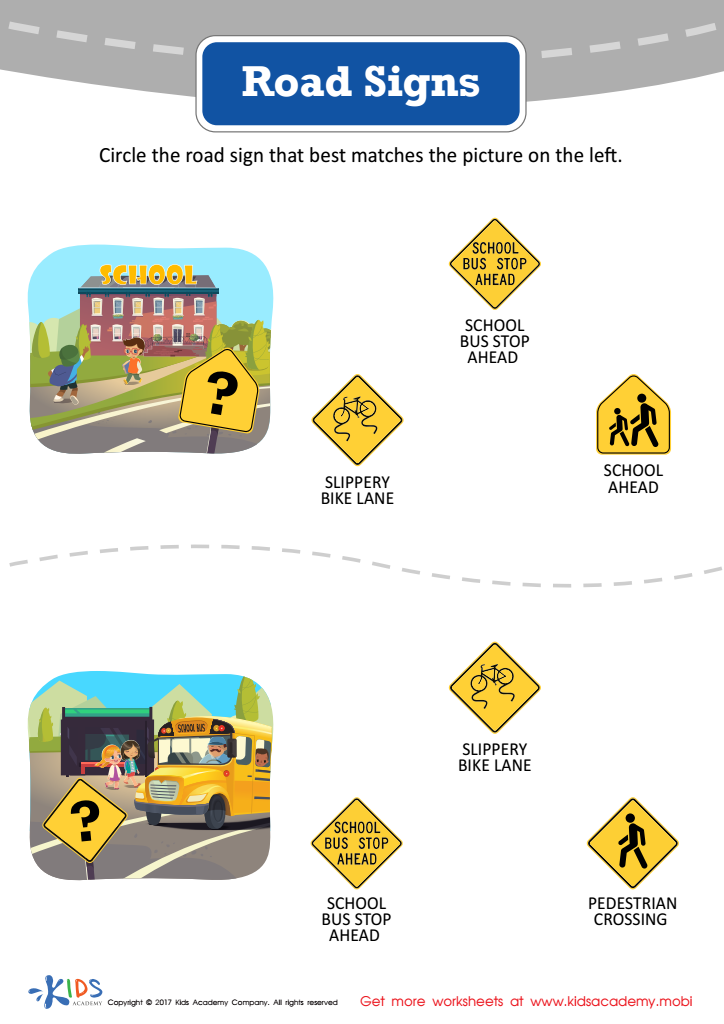

Road Signs (Part 1) Worksheet
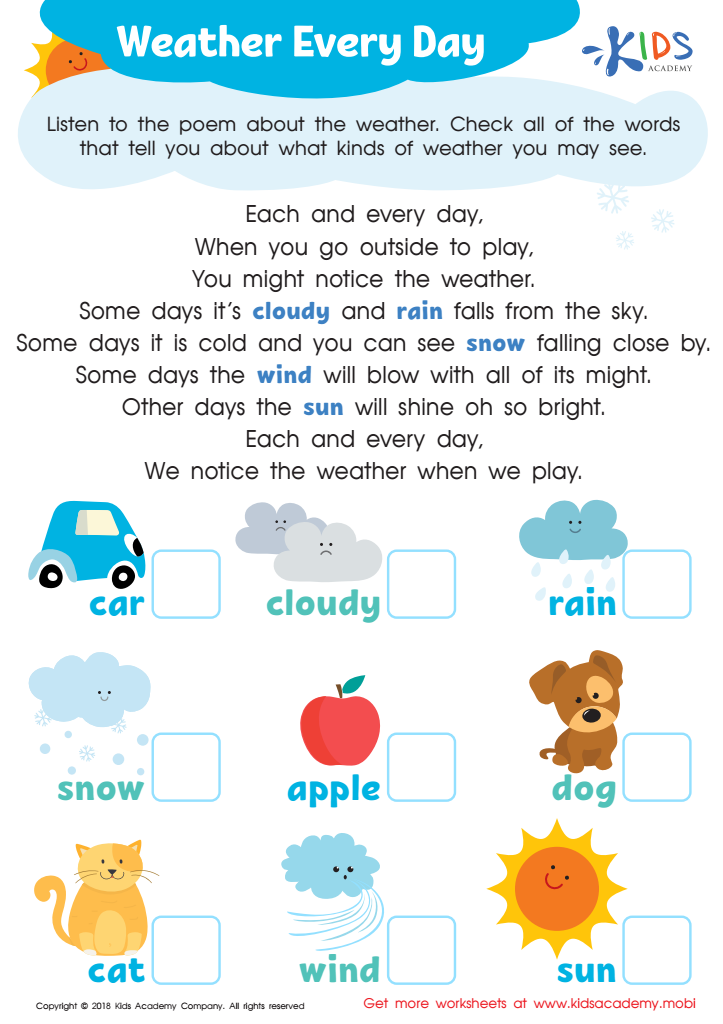

Weather Every Day Worksheet
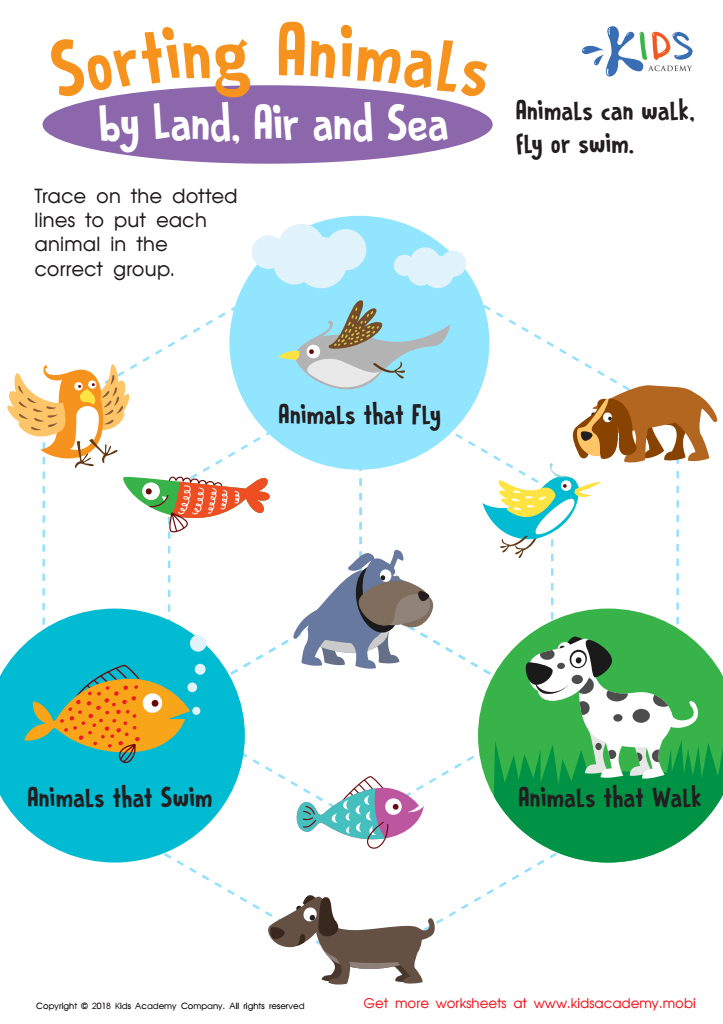

Sorting Animals by Land, Air and Sea Worksheet
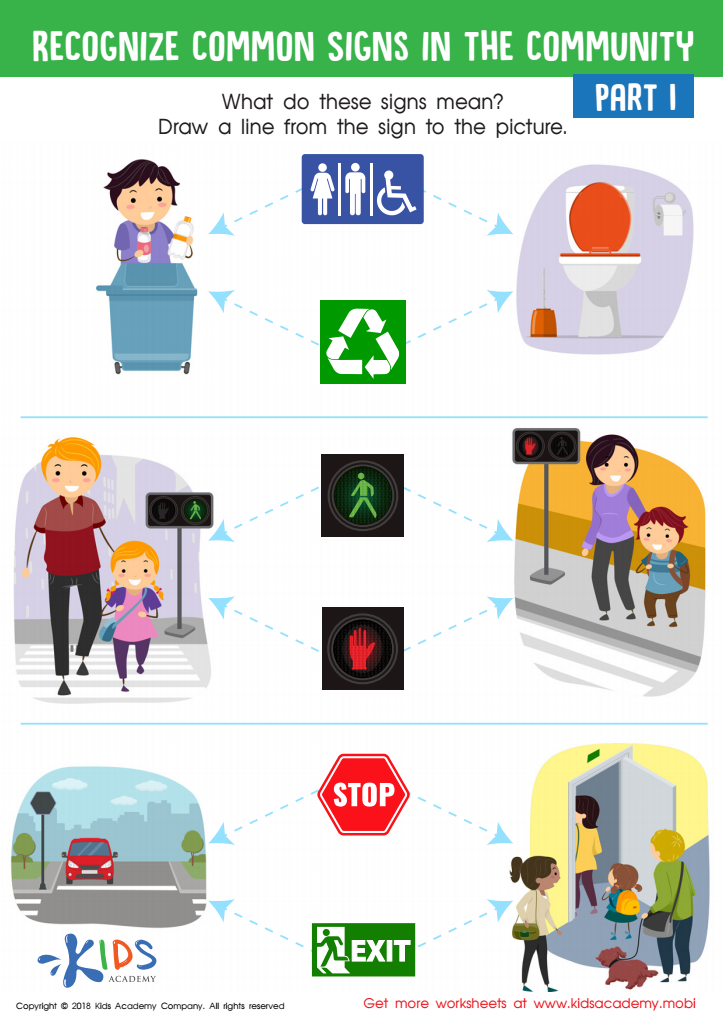

Recognize Common Signs: Part 1 Worksheet
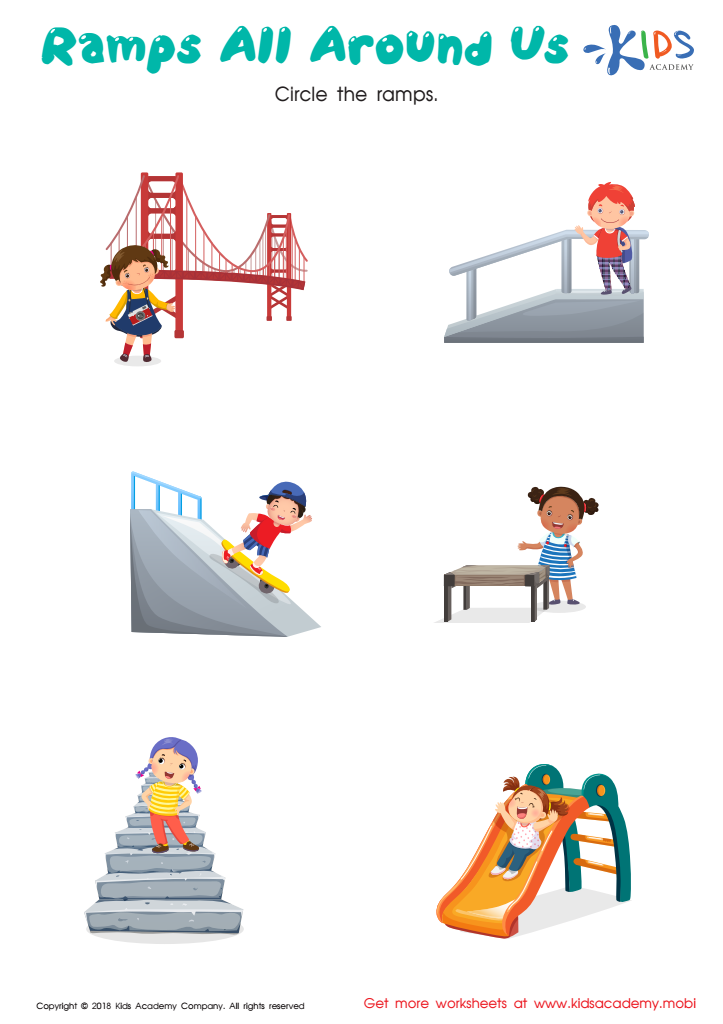

Ramps All Around us Worksheet
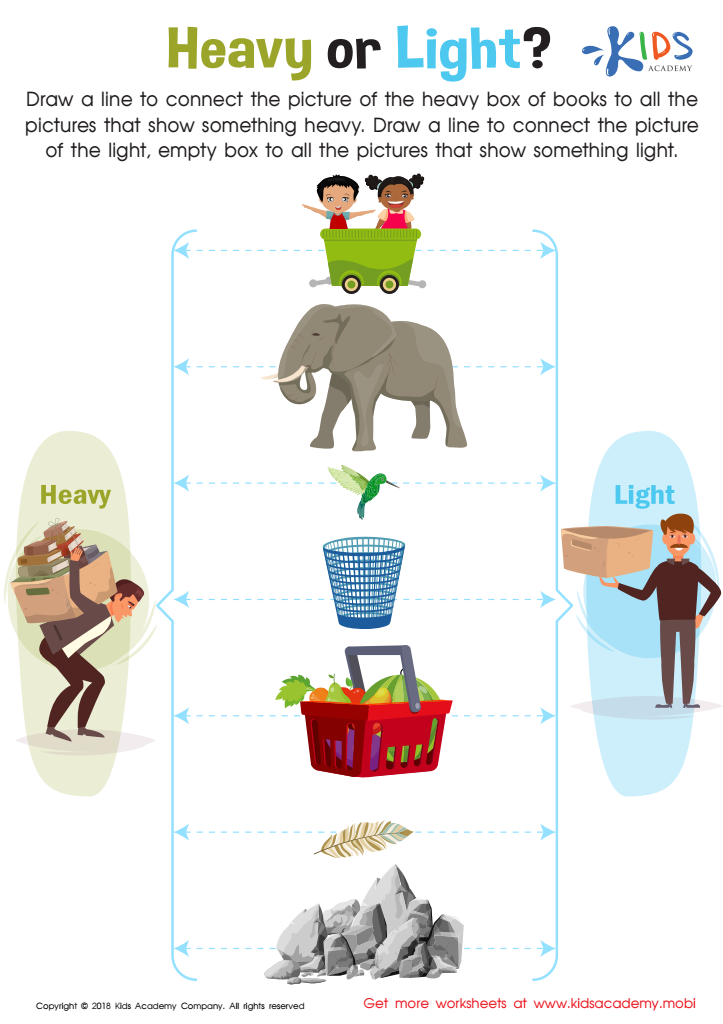

Heavy or Light? Worksheet
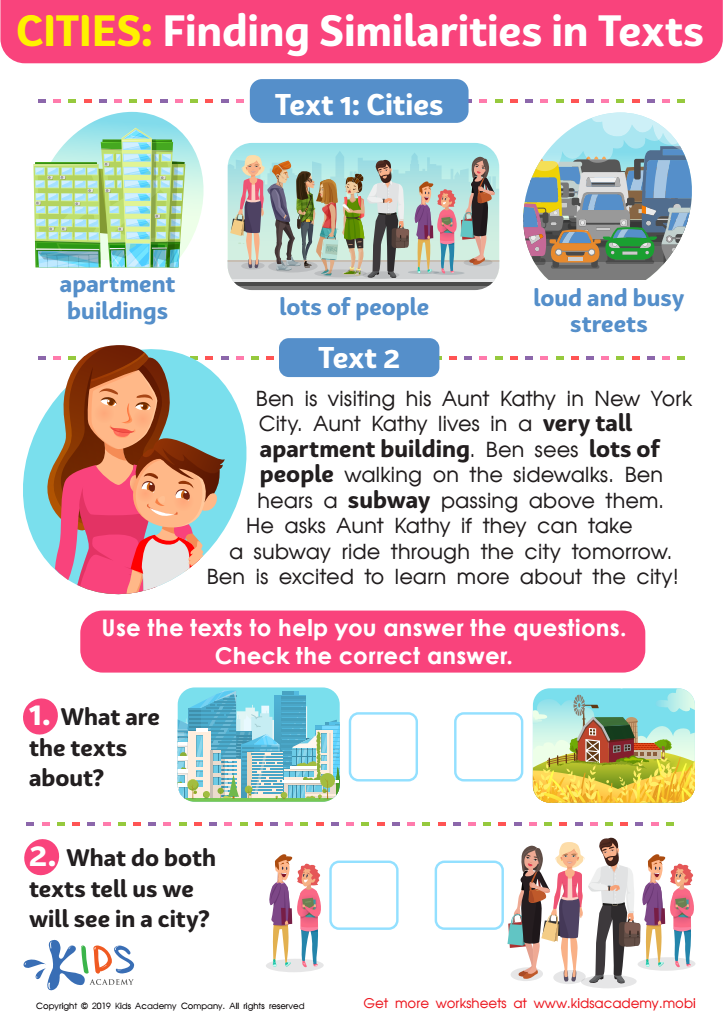

Cities: Finding Similarities Worksheet
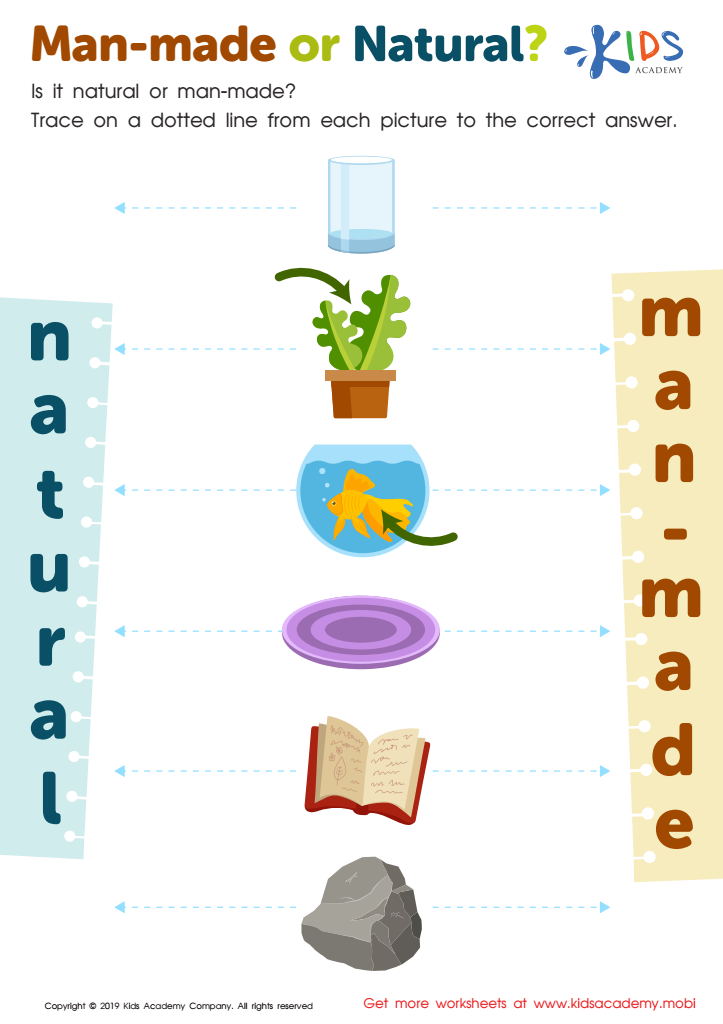

Man-Made or Natural? Worksheet
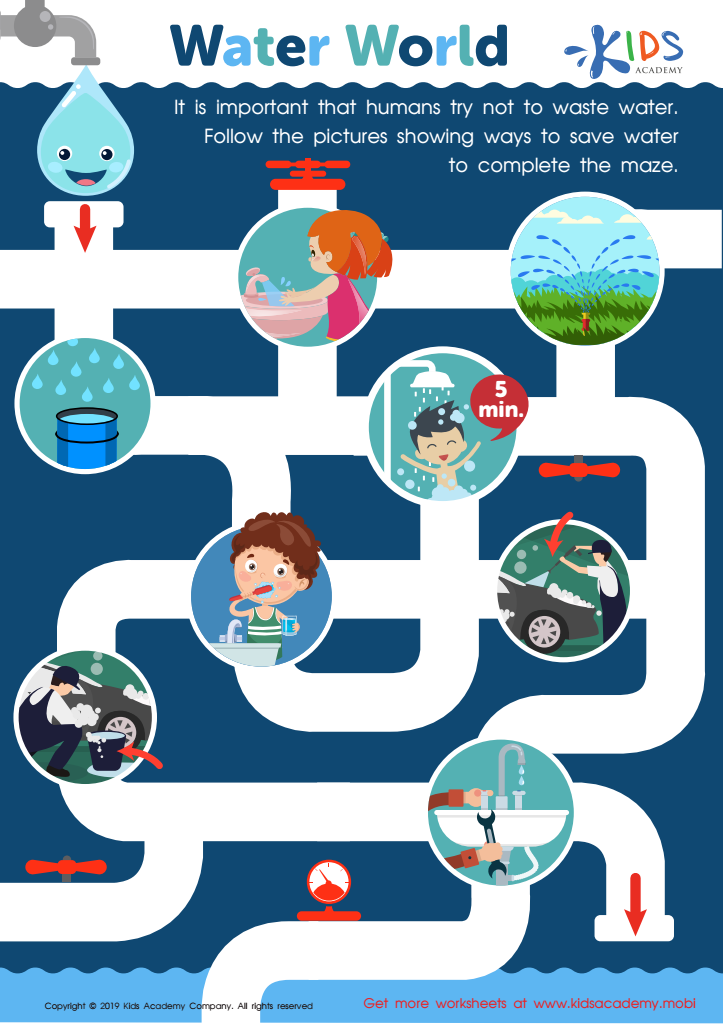

Water World Worksheet
Enhancing observation skills in children aged 4-5 is crucial for their cognitive, social, and emotional development. At this early stage, children are naturally curious and eager to explore the world around them. By fostering these observation skills, parents and teachers can help children become more aware and attentive, laying a strong foundation for future learning.
Improving observation skills encourages critical thinking and problem-solving abilities. Children learn to notice patterns, relationships, and details in their environment, which can spark their curiosity and desire to ask questions. This active exploration cultivates a love for learning and helps them develop robust analytical skills that they will rely on throughout their academic lives.
Additionally, strong observation skills enhance social interactions. Children who can accurately observe and interpret social cues are better equipped to navigate friendships, express empathy, and communicate effectively with others. This contributes to healthier emotional development and improved relationships with peers and adults.
Moreover, observational skills are fundamental in academic settings. They support literacy development by helping children focus on illustrations and text details, facilitating comprehension and engagement. Thus, prioritizing observation skills for young learners is vital for nurturing inquisitive, socially adept, and academically prepared individuals.

 Assign to My Students
Assign to My Students
